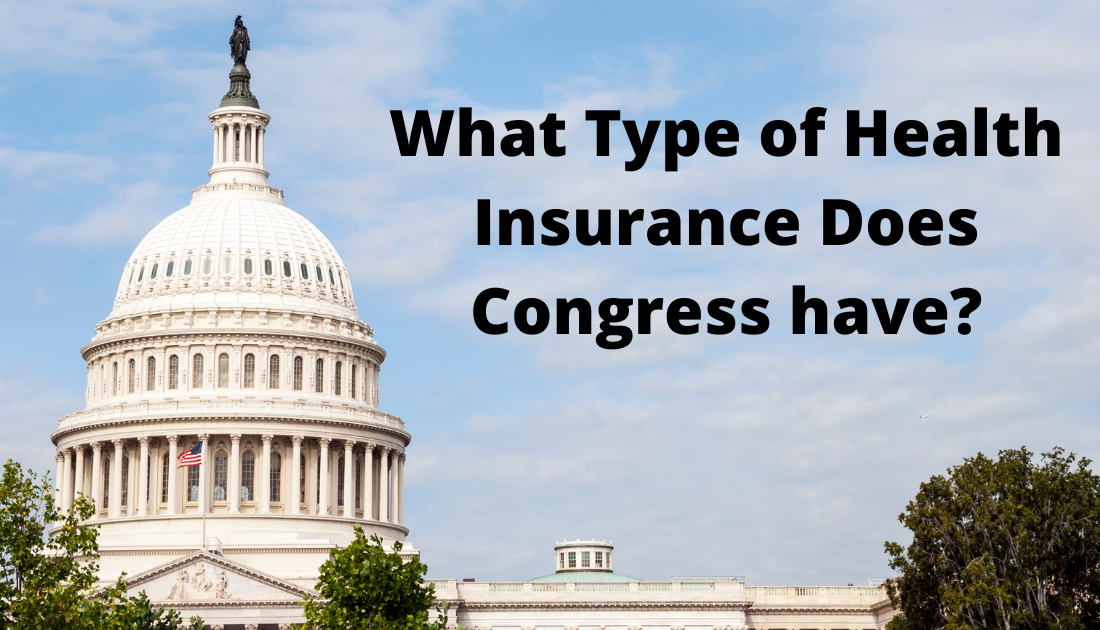What Type of Health Insurance Does Congress Have?

Just the Essentials...
- Despite rumors to the contrary, Members of Congress do not get free health insurance for life.
- Under the Affordable Care Act, Congressional staff, including Senators, Representatives, and aides, must purchase their insurance through the DC health insurance exchange.
- These plans are the same as the plans offered to the general public, though Members of Congress also have access to an on-site facility to provide on-site care.
How does health insurance work for congress?
There is a persistent rumor surrounding the United States Congress. According to legend, senators and representatives have access to free, gold-standard healthcare that is leagues better than anything offered through the Affordable Care Act (ACA).
It’s a talking point that pops up across the political spectrum: those in favor of the ACA complain that Congress is hoarding government funds to care for themselves. At the same time, those opposed to the ACA claim that it’s so terrible, not even the people who wrote it would use it.
It’s a rumor that speaks to the average American’s frustration with healthcare inequality, a spark that has ignited many flame wars on Facebook and Twitter. Yet there’s one thing that all of those memes and rant threads overlook: the rumor isn’t true.
Members of Congress DO NOT get free health insurance.
The contradiction can be found in the Affordable Care Act’s text under Section 1312:
Notwithstanding any other provision of law, after the effective date of this subtitle, the only health plans that the Federal Government may make available to Members of Congress and congressional staff with respect to their service as a Member of Congress or congressional staff shall be health plans that are— (I) created under this Act (or an amendment made by this Act); or (II) offered through an Exchange established under this Act (or an amendment made by this Act).
In plain English, that means that it is illegal for the Federal Government to Members of Congress (or their staff) to have a plan that does not meet the requirements outlined in the ACA.
This wasn’t originally a part of the Affordable Care Act. Originally, Members of Congress were subject to the Federal Employees Health Benefits Program (FEHB), which provides insurance to Federal employees and postal workers. However, the provision in Sec. 1312 was added as the plan was being revised and is one of the few parts of the Affordable Care Act to be passed unanimously.
This means that Congress chooses from the same selection of plans that regular Americans do. Specifically, they choose from DC Healthlink’s Small Business Health Options Program (SHOP). It is a bit unusual that Congress, which has 469 seats, purchases from a marketplace that is specifically marketed to businesses with less than 50 employees, but this makes more sense if you understand how Congress is structured.
It’s easy to think of each Senator and Representative as being a single employee of the Federal Government, but there’s a lot going on behind the scenes. Each Member of Congress has their own staff, who handle everything from dealing with the press to providing cyber security services.
While the Federal Government pays Members of Congress a yearly salary, they also provide a stipend to pay for various expenses, including travel, mail, and staff. For Representatives, this is called the Member’s Representational Allowance (MRA).
Senators have a similar stipend called the Senator’s Official Personnel and Office Expense Account (SOPOEA). You can read more about Congressional compensation here, but the takeaway is that Members of Congress individually hire and pay their employees.
Each Senator and Representative’s office is technically a small business contracted by their constituents to represent them in government. This means that all Members of Congress and their staff are subject to the same rules as any small business operating in the District of Columbia.
So, what does the government pay for health insurance?
Politicians like Alexandria Ocasio-Cortez have cited much lower premiums for Members of Congress as a driving force behind their criticism of the American health care system, with Ocasio-Cortez famously tweeting that she paid twice as much for insurance as a waitress than she does as a Representative. This is mathematically true, but not necessarily because of Congressional privilege.
Under the Affordable Care Act, Members of Congress must choose a Gold-level plan. The average Gold plan has an 80/20 split when it comes to cost-sharing: you pay only 20 percent of healthcare costs out-of-pocket in exchange for higher monthly premiums. This isn’t the highest level of plan either: Platinum plans cover even more of your costs, with a 90/10 split. Premiums are also the same across all enrollees: it is illegal for any plan offered on an ACA exchange to raise or lower prices for any reason, including membership in Congress.
That said, the Federal Government does provide an insurance stipend of roughly 72 percent of the average FEHB premium, with a hard cap of 75 percent of any given DC SHOP premium. Surprisingly, this is actually below average for single-person coverage, as the average American worker only pays 17 percent of their total premium, compared to the 28 percent paid by the average Member of Congress. In addition, these employer contributions only apply to Gold plans, even though the DC SHOP offers plans at every medal level. Senators and Representatives also do not qualify for the premium tax credit, even if they somehow met the income requirement, as this credit only applies to Silver plans.
Congress members and their employees also have access to cafeteria plans, allowing them to establish a flexible spending arrangement (FSA) to cover their medical expenses with pre-tax dollars. This is not an exclusive perk to Congress, however, many large employers and government agencies offer similar, if not identical, benefits.
So what about Ocasio-Cortez’s famous tweet? Based on what can be gleaned from her financial records, she does indeed pay less for insurance as a Representative. However, there are various reasons for that: namely, she worked for an employer that likely made low or no contributions toward her health insurance in a state with some of the highest insurance premiums in the country.
Her points still have validity, just not for the reasons people think: it’s a critique of the health care system, not a condemnation of Congress’s special privileges. However, that does not necessarily mean that those privileges don’t exist. Many believe that there is an inherent unfairness in someone making just over $26,000 having to pay more for insurance than someone who makes roughly six times as much.
Does Congress have any special privileges when it comes to insurance?
You won’t see it on C-SPAN, but just below the US capitol is a busy medical clinic: the Office of the Attending Physician. Its origin, at least according to the US Senate, is one of necessity: back in 1928, Members of Congress were dying at a rate of about 20 per year. The following year, the Office of the Attending Physician was established to provide onsite medical care to Senators and Representatives.
The average citizen knows very little about Congress’s on-site medical care, aside form the fact that it is a Navy operation that employs military doctors and supposedly offers high-quality health care services, including primary medical care.
According to a 2009 report by ABC News, these doctors offer services that may vary from routine vaccinations to physical therapy. Additionally, they often include specialists from facilities like John Hopkins or Cleveland Clinic to treat specific conditions. Members of Congress pay an undisclosed annual fee for these services, which is separate from their insurance premiums: as of 2009, this fee was $503. The rest of the cost comes from the US Navy’s budget.
The Office of the Attending Physician is probably the most significant health care perk for Congress members. While many large businesses offer on-site clinics, few are as elaborate and well-staffed as that of Congress However, this is somewhat balanced by the fact that the office is only accessible in Washington D.C. While Members of Congress can also get free care from military hospitals in the D.C. area, they have to rely on their insurance elsewhere. If a Senator or Representative suffers a medical emergency while out of the office, such as on the campaign trail or during a recess, they’ll use the same health care infrastructure as anyone else.
Congressional healthcare only lasts for as long as you’re a Member of Congress. As federal employees, Members of Congress qualify for FEHB retirement benefits. The average member of Congress is close to retirement age, but if younger members return to private life, they would no longer be covered. Also, much like their pre-retirement insurance plans, they need to pay a premium.
Getting health insurance on par with or better than that Members of Congress receive isn’t an unattainable ideal, and you don’t need to pay a fortune for it either. Our licensed insurance agents may be able to help you find a plan that fits your needs. Call us today at (800) 318-9984, or enter your zip code above to begin your search today.
Key Resources:
Health Insurance for Congress: PUBLIC LAW 111–148—MAR. 23, 2010
What is the Federal Employees Health Benefits (FEHB) Program?
Health Benefits for Members of Congress and Designated Congressional Staff: In Brief
Special Health Care for Congress: Lawmakers’ Health Care Perks
